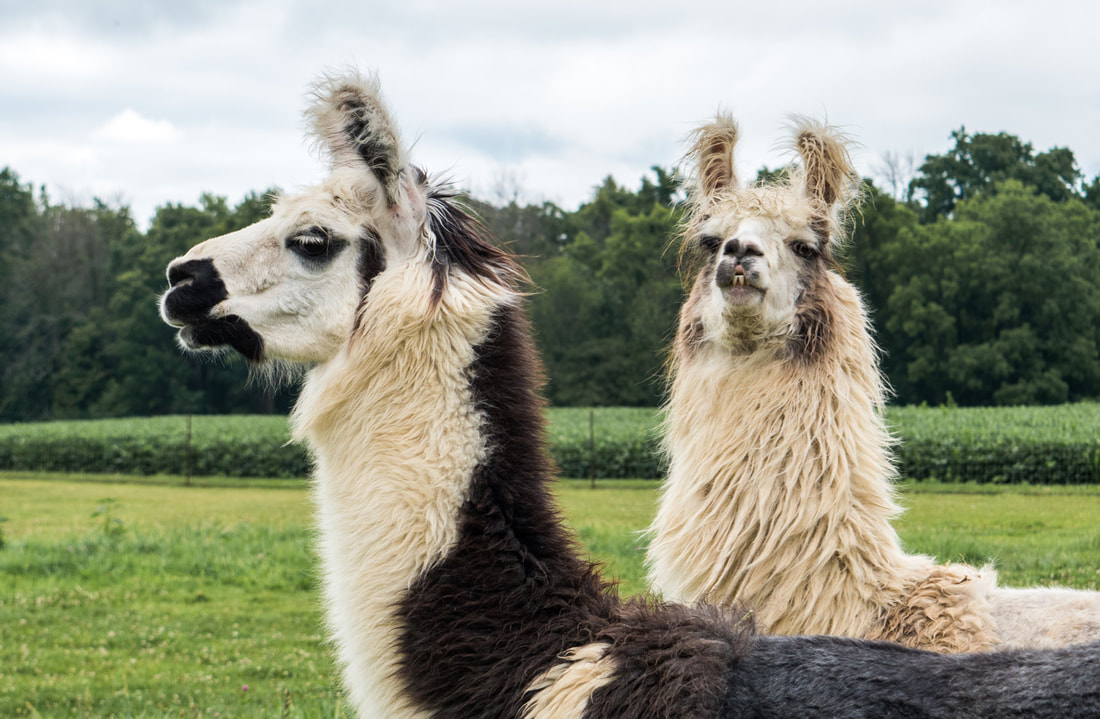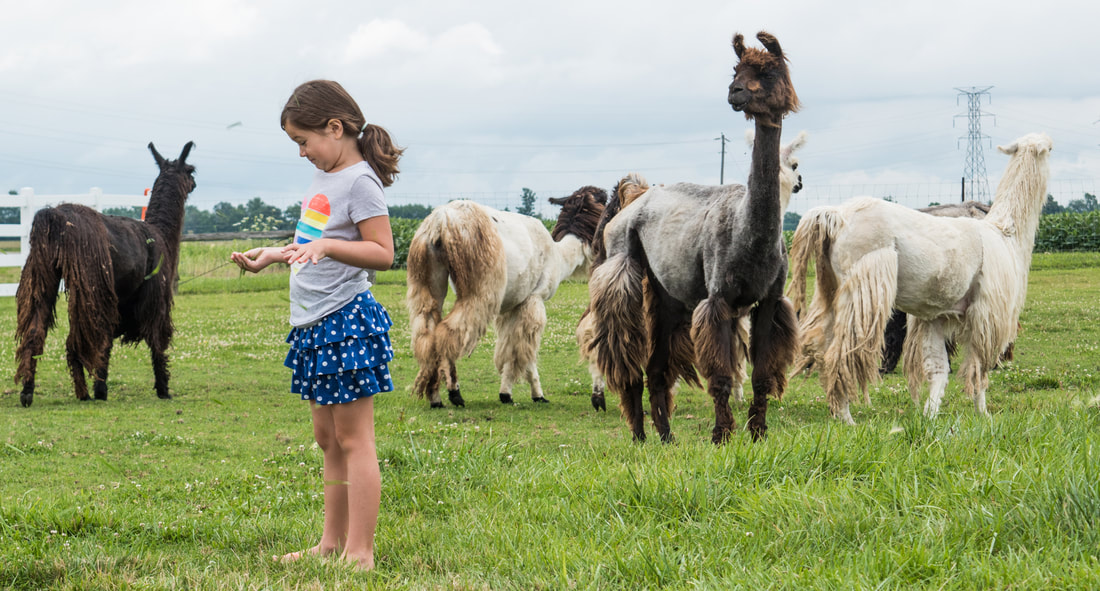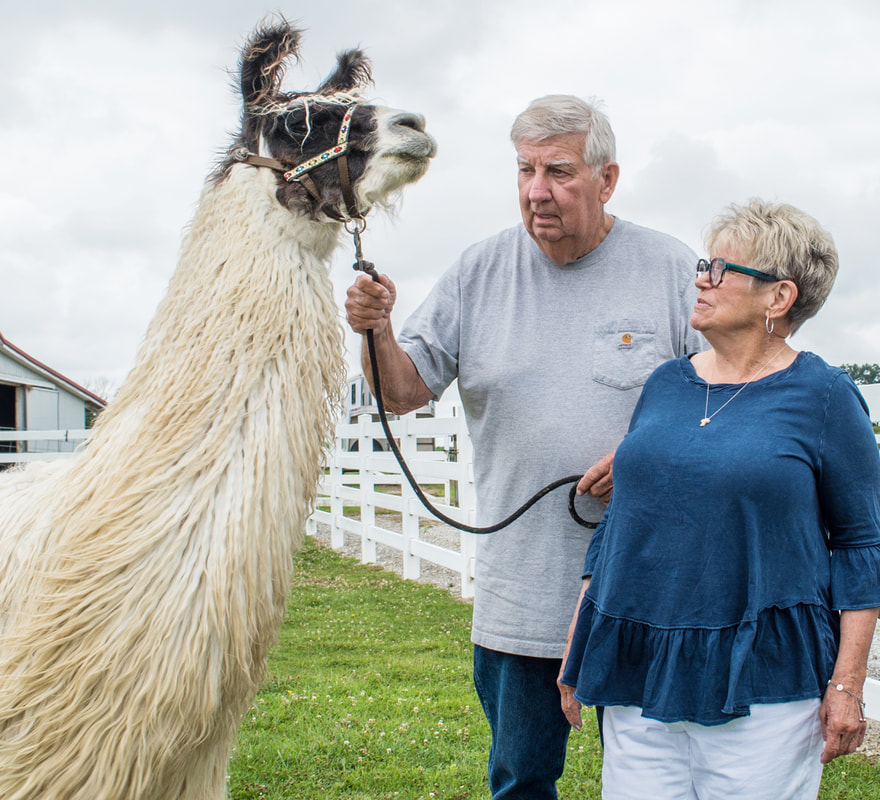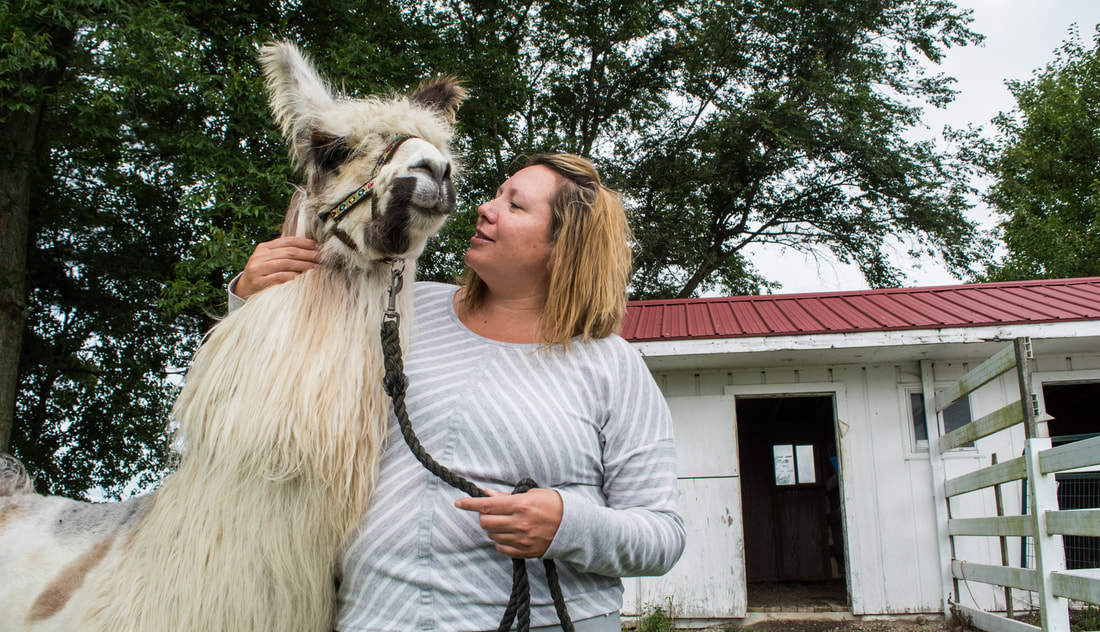|
The following article appeared in a special section Sunday in The Courier-Times under the theme Cultivating Henry County: Family Farms. Any time I can mix it up with some llamas, it's a good day. by Donna Cronk For years, Allen and Sue Davis and their daughter, Lindsay (now Lindsay Brown), raised sheep on their rural New Castle property, west of Cadiz. After Lindsay's tenth year showing 4-H sheep, she and her mom were at the Indiana State Fair and watched a llama exhibition. But they did something more than merely watch. "We bought two llamas," recalls Sue of their quick decision that day. The two geldings, Prince and Romeo, were the start of a new era for the family, that of raising and showing llamas all over the country as well as Allen becoming a show judge with the Alpaca and Llama Show Association. "It just kept growing," Sue says of their interest in these animals that has spanned almost 25 years. "We've met lots of nice people from all over the U.S. and Canada." At one time they also bred and sold the animals but now maintain their herd for their own family's enjoyment. There are two classes of showing llamas: performance and halter. The Davises work in the halter class. When judging llamas, Allen says, "You're basically looking at the confirmation of the animal structure. You watch their walk, squareness of front legs and rear legs, walk, top line, sqareness of their rump, length of neck." Historically, llamas were used for packing / utility animals in South America where they were better than horses or mules for that purpose. They are also guard animals by nature. Interestingly enough, Sue says that Noblesville has the largest 4-H llama youth association in the nation with an average of 100 4-Hers participating. Lindsay says they are used on farms within herds to protect the other animals. If they become aware of danger, they sound a special "alarm" call to alert the others. A herd of llamas will surround its own young ones to protect them from predators. And when llamas are content, they hum. Says Allen, "They're like a dog. A lot of it is in the breeding." Other attributes of the creatures are that they are people-pleasers, very clean and can even be potty trained. The Davis farm, called Rose Cottage Llamas, is home to the one-time national grand champion wool male llama, a Bolivian llama named Conductor. The family says he won every show he was in for three years. He also served as national reserve champion during his prime. He is deceased now but a large, framed picture of him is featured on a wall. Llamas can live into their 20s. Allen says of llamas, "When you are around them, they have a calmness to them that makes your mind and your body calm." He says they are quick learners. Says Sue, "I like to watch their gracefulness. They're nice to each other."
Adds Lindsay, "They always remember you by your scent." Lindsay says of the animals, "They all have their own personality. There's always one female in charge." Lindsay and her children, Luke and Layla, were on hand to talk about the llamas on the day The Courier-Times visited. The Browns make their home in Hagerstown. Right now the rural New Castle family has a herd of 10 females and three males. Allen owned AJ Pools in Anderson for 40 years. He's now retired. Sue, who is a high school special education teacher at Shenandoah, says she misses showing the animals. However, with two young grandchildren, who knows? Rose Cottage llamas may again be back in show rings once again.
0 Comments
Leave a Reply. |
|



